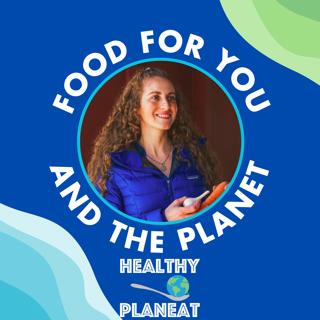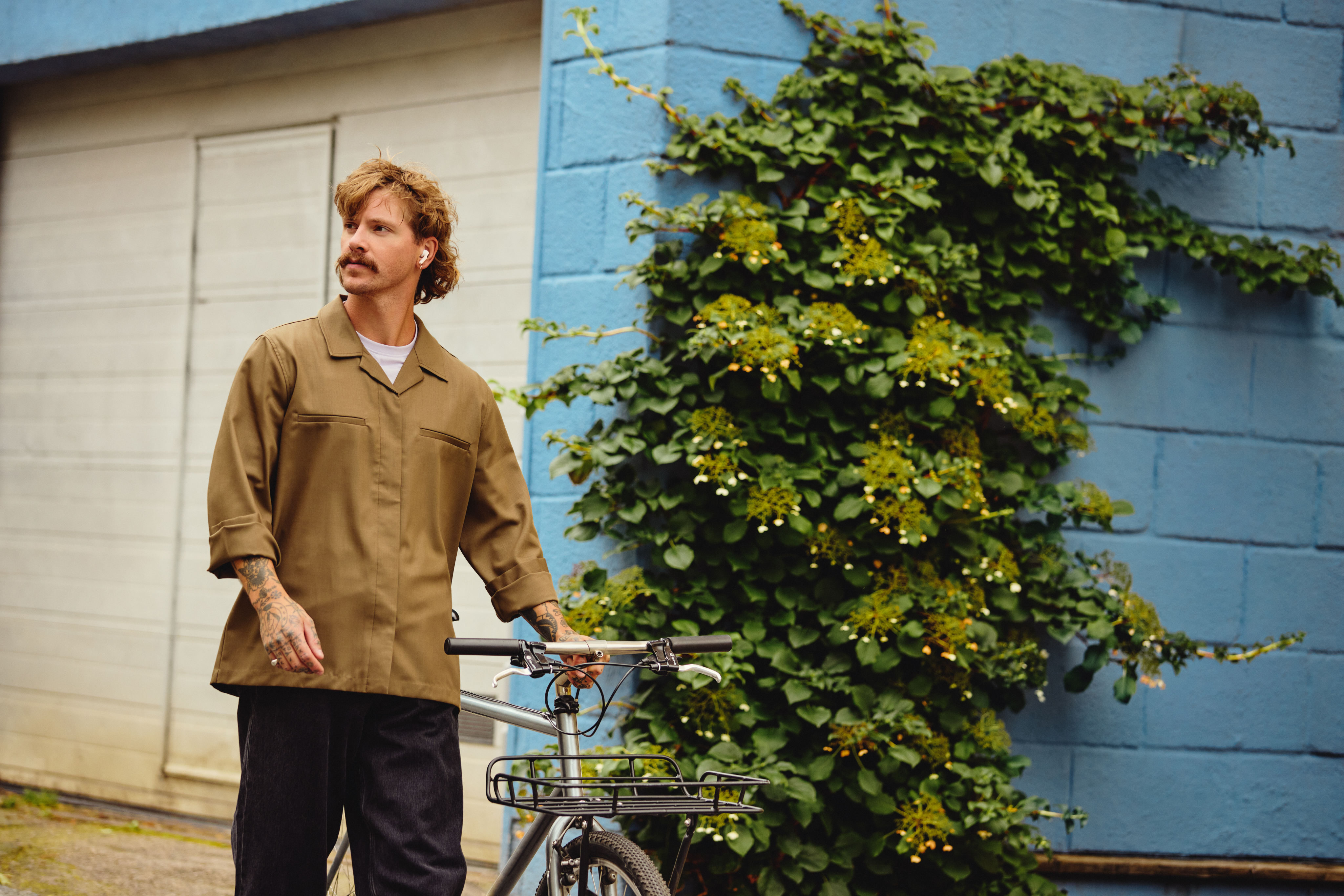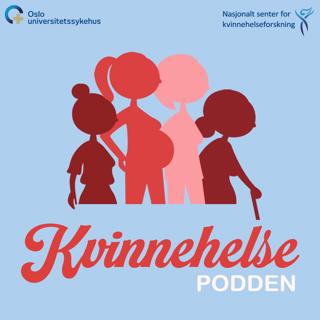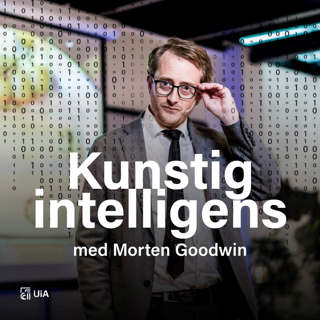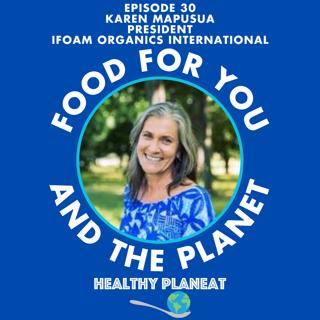
Episode 30: IFOAM Organics International Karen Mapusua - How Can We Build An International Organic Agriculture Movement?
Karen Mapusua is the President of IFOAM Organics International. Founded in 1972, IFOAM Organics International is a membership-based organization working to bring true sustainability to agriculture across the globe. The mission of IFOAM Organics International is to lead change, organically. Its goal is the broad adoption of truly sustainable agriculture, value chains and consumption in line with the principles of organic agriculture. Through its work, it builds capacity to facilitate the transition of farmers to organic agriculture, raises awareness of the need for sustainable production and consumption, and advocates for a policy environment conducive to agro-ecological farming practices and sustainable development. It has over 700 members in over 100 countries. Karen Mapusua is President of IFOAM Organics International and is the Director of the Land Resources Division of the Pacific Community based in Fiji providing scientific and technical support in agricultural development, serving 22 Pacific Island states. She has a background in NGO capacity building and management and has worked in rural development in the Pacific islands region for close to 20 years with a focus on organic agriculture as a path to social and economic development. She co-founded the Pacific Organic & Ethical Trade Community (POETCom) and was extensively involved in developing the Pacific Organic Guarantee Scheme and developing alternative forms of certification that empower farmers. TOPICS EXPLORED 0:00 – 1:36 – Introduction 1:36 – 2:49 – What is the IFOAM Organics International and what type of work does it do? 2:49 – 4:42 – How did you become interested in sustainable food and agriculture? 4:42 – 6:31 – What inspired you to co-found the Pacific Organic & Ethical Trade Community and how did that lead you to the work you do today at IFOAM? 6:31 – 8:00 – Why is organic farming important for people and the environment? 8:00 – 9:41 – Can you tell me more about the IFOAM Regional bodies and the work that they do? 9:41 – 10:51 – Can you tell me more about the IFOAM Organic Ambassadors? 10:51 – 11:59 – What is the Organic Guarantee System and why is it important to clearly define what organic farming is and what it is not? 11:59 – 13:44 – What are some of the challenges related to transitioning to organic practices? 13:44 – 15:05 – What is organic group certification and how can it benefit farmers? 15:05 – 16:46 – What are some of the key outcomes of IFOAM Organics International’s work? 16:46 – 18:37 – What are some of the most inspiring examples of organic farms you have seen around the world? 18:37 – 21:41 – I read that one of Fiji’s islands went 100% organic – how did this come about and what are some of the key things that can be learned so other places can transition to 100% organic? 21:41 – 23:51 – What would you recommend to cities, regions, or countries that would like to set goals related to organic food and agriculture? 23:51 – 25:06 – What are your hopes for the future of the organic movement? 25:06 – 26:20 – Things to share and wrap up IFOAM ORGANICS INTERNATIONAL INFORMATION https://www.ifoam.bio/ RESOURCES Definition of Organic Agriculture: https://www.ifoam.bio/why-organic/organic-landmarks/definition-organic Global Organic Market Overview: https://www.ifoam.bio/global-organic-market-overview IFOAM Family of Standards 2025: https://www.ifoam.bio/ifoam-family-standards-2025 Elevating Truly Regenerative Agriculture – A Statement from the Organic Movement: https://www.ifoam.bio/elevating-truly-regenerative-agriculture-statement-organic The Role of Smallholders in Organic Agriculture: https://www.ifoam.bio/role-smallholders-organic-agriculture Smallholder Group Certification for Organic Production & Processing: https://www.ifoam.bio/smallholder-group-certification-organic-production How Governments Can Recognize and Support Participatory Guarantee Systems: https://www.ifoam.bio/how-governments-can-recognize-and-support-participatory FOOD FOR YOU AND THE PLANET PODCAST INFORMATION Apple Podcasts: https://podcasts.apple.com/us/podcast/food-for-you-and-the-planet/id1739416396 Spotify: https://open.spotify.com/show/7pkAIuXxl9dzD48b7qMOL1 RSS: https://feeds.libsyn.com/506343/rss Podcast Instagram: @foodforyouandtheplanet TAGS Food Environment Health Podcast Sustainability Agriculture Organic IFOAM IFOAM Organics International Regenerative Agriculture Regenerative Organic Agriculture Smallholder Farmers
16 Apr 26min
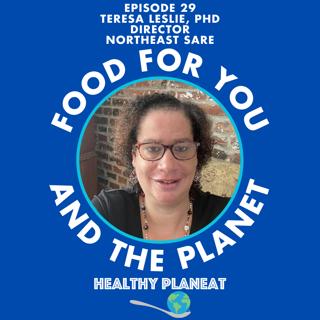
Episode 29: Northeast SARE Teresa Leslie PhD - How Can We Increase Sustainable Agriculture Research and Education?
Teresa Leslie, PhD, Director of the Northeast Sustainable Agriculture Research and Education Program. Teresa holds a doctorate in medical anthropology from the University of Massachusetts Amherst, a master’s degree in medical anthropology from the University of South Carolina and a bachelor’s degree in anthropology from Howard University. She has experience cultivating relationships with diverse stakeholder groups to create innovative, evidenced-based policy and practice solutions. Founded in 1988, USDA’s Sustainable Agriculture Research and Education (SARE) is a farmer-driven research and knowledge-sharing program that encourages farmers, ranchers, educators and researchers who are passionate about innovating to experiment and make growing food more rewarding for themselves, the environment and their communities. The Northeast Sustainable Agriculture Research and Education (SARE) Program offers grants and education to farmers, educators, service providers, researchers and others to address key issues affecting the sustainability of agriculture throughout the Northeast. The program serves Connecticut, Delaware, Massachusetts, Maryland, Maine, New Hampshire, New Jersey, New York, Pennsylvania, Rhode Island, Vermont, West Virginia, and Washington, D.C. The program is administered by Northeast SARE's host institution, the University of Vermont. TOPICS EXPLORED 0:00 – 1:11 – Introduction 1:11 – 4:14 – What is the Northeast SARE Program and what type of work does it do? 4:14 – 5:45 – How did you become interested in sustainable food and agriculture? 5:45 – 8:49 – What are some of the key topics Northeast SARE is focused on? 8:49 – 10:36 – What are some examples of impactful research that has been funded by Northeast SARE and what have some of the key findings been? 10:36 – 13:19 – What are some ways you think agriculture can support communities? 13:19 – 17:08 – Why is it important to build local and regional food systems and how can Northeast SARE support that work? 17:08 – 19:36 – One challenge farmers face is climate change. What can be done to help farmers with this? 19:36 – 22:08 – Is there anything else you would like to share about Northeast SARE’s grants, training opportunities, and resources? 22:08 – 25:01 – What are some of the greatest challenges and benefits related to achieving sustainable food and agriculture systems? 25:01 – 27:16 – What do you think is the future of sustainable agriculture? 27:16 – 28:15 – Things to share and wrap up NORTHEAST SARE INFORMATION https://northeast.sare.org/ RESOURCES SARE: https://www.sare.org/ 30 Years of SARE: Our Farms, Our Future: https://www.sare.org/resources/30-years-of-sare/ SARE Funded Projects: https://projects.sare.org/search-projects/ SARE Resources and Learning: https://northeast.sare.org/resources/ Northeast SARE Grants: https://northeast.sare.org/grants/ FOOD FOR YOU AND THE PLANET PODCAST INFORMATION Apple Podcasts: https://podcasts.apple.com/us/podcast/food-for-you-and-the-planet/id1739416396 Spotify: https://open.spotify.com/show/7pkAIuXxl9dzD48b7qMOL1 RSS: https://feeds.libsyn.com/506343/rss Podcast Instagram: @foodforyouandtheplanet TAGS Food Environment Health Podcast Sustainability Agriculture USDA SARE Northeast SARE
12 Mar 28min
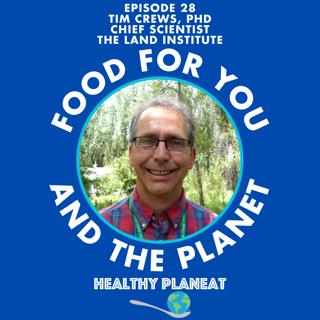
Episode 28: The Land Institute Tim Crews PhD - How Do Perennial Crops Benefit Land and Food Systems?
Tim Crews, PhD, is the Chief Scientist and Director of the International Initiative at The Land Institute. Tim is at The Land Institute because, in his words, “the work is the most focused and far-reaching of any organization I know. It promises to transform agriculture from being an ecological liability to an asset.” Tim first visited The Land Institute in 1981 after reading New Roots for Agriculture as an undergraduate majoring in agroecology at the University of California-Santa Cruz. Over the next three decades, he pursued a doctorate degree at Cornell, carried out a post-doc fellowship at Stanford, and developed an agroecology program at Prescott College in Northern Arizona. But all along, he continued to track the work of The Land Institute and, in 2000, began to collaborate directly. In 2012, Tim joined the staff as director of research and an ecologist. He helps facilitate and coordinate the research efforts of his colleagues and conducts work on the ecosystem functions performed by soils. The Land Institute is a 501(c)(3) non-profit research organization based in Salina, Kansas, that was founded in 1976. The Land Institute co-leads the global movement for perennial, diverse, truly regenerative agriculture at scale. Our work, led by a team of plant breeders and ecologists in multiple partnerships worldwide, is focused on developing perennial grains, pulses, and oilseed-bearing plants to be grown in ecologically intensified, diverse crop mixtures known as perennial polycultures. The Land Institute’s goal is to create an agriculture system that mimics natural systems to produce ample food and reduce or eliminate the negative impacts of agriculture. Through transdisciplinary research and collaborations, The Land Institute builds learning communities to help society cross the threshold into diverse, perennial grain agriculture. TOPICS EXPLORED 0:00 – 1:54 – Introduction 1:54 – 3:38 – What is The Land Institute and what type of work does it do? 3:38 – 6:04 – How did you become interested in sustainable agriculture? 6:04 – 7:26 – What types of research efforts do you lead at The Land Institute? 7:26 – 11:02 – What are some of the greatest challenges related to achieving sustainable agriculture systems? 11:02 – 15:39 – What are perennial crops and why are they important? 15:39 – 22:32 – What are some of the main perennial crops you study and how can they be incorporated into sustainable agriculture systems? 22:32 – 29:04 – How do you do this plant breeding and how does that differ from Genetically Modified Organisms (GMOs)? 29:04 – 30:41 – What is the Global Inventory Project? 30:41 – 31:48 – What is ecological intensification? 31:48 – 33:09 – What is perennial polyculture? 33:09 – 37:20 – How do perennial crops improve soil health? 37:20 – 41:05 – How does soil health relate to climate? 41:28 – 44:55 – How are perennial crops being incorporated into foods? 44:55 – 48:22 – What do you think the future of perennial crops and how people use them will entail? 48:22 – 50:04 – What do you think are the most important things for society to do to shift towards sustainable agriculture systems? 50:04 – 51:50 – Things to share and wrap up THE LAND INSTITUTE INFORMATION https://landinstitute.org/ RESOURCES Ecological Intensification and Perennial Polyculture: https://landinstitute.org/our-work/ecological-intensification/ Perennial Grain Crops: https://landinstitute.org/our-work/perennial-crops/ Perennial Percent: https://kernza.org/perennial-percent/ The Global Inventory Project: https://landinstitute.org/our-work/new-roots-international/global-inventory-project/ The Land Institute’s International Initiative: https://landinstitute.org/our-work/new-roots-international/ Research and Scientific Publications: https://landinstitute.org/learn/research-and-scientific-publications/ FOOD FOR YOU AND THE PLANET PODCAST INFORMATION Apple Podcasts: https://podcasts.apple.com/us/podcast/food-for-you-and-the-planet/id1739416396 Spotify: https://open.spotify.com/show/7pkAIuXxl9dzD48b7qMOL1 RSS: https://feeds.libsyn.com/506343/rss Podcast Instagram: @foodforyouandtheplanet TAGS Food Environment Health Podcast Sustainability Agriculture Soil Health Soil Carbon Soil Carbon Sequestration Regenerative Agriculture Regenerative Farming Kernza Perennial Crops Perennial Grain Crops Perennial Percent The Land Institute
12 Feb 51min
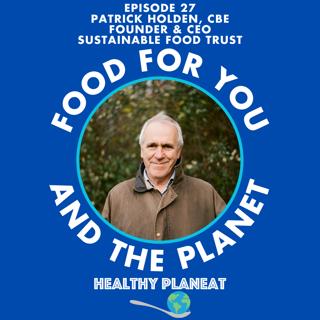
Episode 27: The Sustainable Food Trust Patrick Holden CBE - What Is The Sustainable Food Trust?
Patrick Holden, CBE, is the Founder and CEO of the Sustainable Food Trust. Patrick Holden is the founder and CEO of the Sustainable Food Trust, whose mission is to work internationally to accelerate the transition towards more sustainable food and farming systems. Between 1995 and 2010, he was Director of the Soil Association, the UK organic advocacy and certification organisation, where he played a leading role in developing the organic standards and market. He currently leads a task force on measuring land use sustainability for the Sustainable Markets Initiative (SMI), established by the then Prince of Wales in 2020. Patrick trained in Biodynamic farming at Emerson College and has farmed for over 50 years on a 300-acre mixed organic dairy holding, now the longest established organic dairy farm in Wales, producing a raw milk cheddar from the milk of 85 Ayrshire cows. He received a CBE for services to organic farming in 2005 and is Patron of the UK Bio-dynamic Agriculture Association. He became an Ashoka fellow in 2016 and was awarded an honorary doctorate for his international work in sustainable agriculture by the University of Wales Trinity St David in 2022. The mission of the Sustainable Food Trust is to accelerate the transition to sustainable food systems, inspired by our philosophy of the interconnectedness of the health of soil, plants, animals and people. Our vision is for future food and farming systems which nourish the health of people and planet and are equitable and accessible to all. TOPICS EXPLORED 0:00 – 2:09 – Introduction 2:09 – 6:14 – What is the Sustainable Food Trust and what type of work does it do? 6:14 – 8:07 – How did you become interested in sustainable food? 8:07 – 11:28 – What led you to create the Sustainable Food Trust? 11:28 – 13:37 – Who are some of the key people and organizations involved with the Sustainable Food Trust as strategic partners or other levels of involvement? 13:37 – 17:29 – What are some of the major challenges related to shifting to a sustainable food system? 17:29 – 22:12 – What is the Sustainable Markets Initiative and what are some of its key impacts? 22:12 – 25:02 – What is the Global Farm Metric and how was it developed? 25:02 – 27:03 – How does the Sustainable Food Trust work to create an informed body of public opinion to drive change? 27:03 – 30:54 – What are some of the key findings of the Sustainable Food Trust report A Good Life and A Good Death: Relocalising Farm Animal Slaughter? 30:54 – 35:13 – What are some of the key findings of the Sustainable Food Trust report Feeding Britain from the Ground Up? 35:13 – 37:40 – What are some of the most memorable moments of your career so far? 37:40 – 39:47 – What do you think are the most important things for society to do to shift towards healthy and environmentally sustainable food systems? 39:47 – 40:31 – Things to share and wrap up SUSTAINBLE FOOD TRUST INFORMATION https://sustainablefoodtrust.org/ https://www.sustainablefoodalliance.org/ RESOURCES Beacon Farms: https://sustainablefoodtrust.org/our-work/beacon-farms/ Feeding Britain: https://sustainablefoodtrust.org/our-work/feeding-britain/ Global Farm Metric: https://www.globalfarmmetric.org/ Local Abattoirs: https://sustainablefoodtrust.org/our-work/local-abattoirs/ Measuring Sustainability: https://sustainablefoodtrust.org/our-work/measuring-sustainability/ Sustainable Livestock: https://sustainablefoodtrust.org/our-work/sustainable-livestock/ Sustainable Markets Initiative: https://www.sustainable-markets.org/ True Cost Accounting: https://sustainablefoodtrust.org/our-work/true-cost-accounting/ FOOD FOR YOU AND THE PLANET PODCAST INFORMATION Apple Podcasts: https://podcasts.apple.com/us/podcast/food-for-you-and-the-planet/id1739416396 Spotify: https://open.spotify.com/show/7pkAIuXxl9dzD48b7qMOL1 RSS: https://feeds.libsyn.com/506343/rss Podcast Instagram: @foodforyouandtheplanet TAGS Food Environment Health Podcast Sustainability Agriculture Sustainable Food Trust
15 Jan 40min
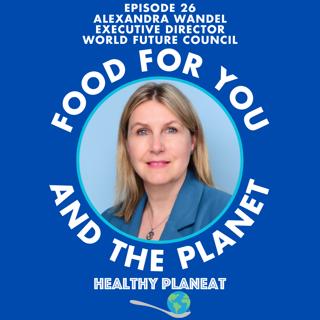
Episode 26: World Future Council Alexandra Wandel - How Can We Create Sustainable Food For The Future?
Alexandra Wandel is the Chair, Management Board of the World Future Council. Alexandra Wandel was appointed Development Director to prepare the Founding Congress of the World Future Council in 2006 and has chaired the Management Board since 2018. The Management Board is in charge of foundation management, representation, Council Liaison and resource mobilization. Since 2010 she has set up partnerships for the Future Policy Award with fourteen UN agencies on topics such as biodiversity, forests, oceans and coasts, desertification, agroecology and rights of children and youth. The World Future Council is committed to a healthy planet with just and peaceful societies now and in the future. It identifies, develops, examines and disseminates future-oriented solutions to current challenges that humanity is facing and celebrates them with its unique Future Policy Award every two years. The Council consists of 50 outstanding global change makers from civil society, science, politics and business. It determines the agenda of the organization’s work and develops statements on it. The Council members meet annually at the World Future Forum to discuss the most pressing challenges and solutions to them. Jakob von Uexkull, the founder of the Alternative Nobel Prize, founded the World Future Council in 2007. TOPICS EXPLORED 0:00 – 1:23 – Introduction 1:23 – 2:05 – What is the World Future Council and what type of work does it do? 2:05 – 3:08 – How did you become interested in a career in environmental sustainability? 3:08 – 4:02 – Who are some of the key partners of the World Future Council and how do they all work together? 4:02 – 5:37 – Who are some of the members of the Council and how are they selected? 5:37 – 7:20 – What is the World Future Policy Award and how does the Award work? 7:20 – 9:40 – What are the main topics and projects the Council has worked on? 9:40 – 10:38 – Within the Ecosystems and Livelihoods topic, Scaling Up Agroecology is a focal point for the Council. How would you define agroecology and why is it important for sustainable food systems? 10:38 – 12:15 – What are some of the Scaling Up Agroecology projects the Council is involved with? 12:15 – 13:38 – Can you tell me about the Himalayan Agroecology Initiative? 13:38 – 15:37 – Can you tell me about The Kambashu Institute? 15:37 – 18:33 – What are some of the things you think are most important for society to shift towards healthy and environmentally sustainable food systems? 18:33 – 19:41 – Things to share and wrap up WORLD FUTURE COUNCIL INFORMATION https://www.worldfuturecouncil.org/ RESOURCES World Future Policy Award: https://www.worldfuturecouncil.org/world-future-policy-award/ World Future Council Ecosystems and Livelihoods Information: https://www.worldfuturecouncil.org/ecosystems-and-livelihoods/ World Future Council Future Generations: https://www.worldfuturecouncil.org/future-generations/ FOOD FOR YOU AND THE PLANET PODCAST INFORMATION Apple Podcasts: https://podcasts.apple.com/us/podcast/food-for-you-and-the-planet/id1739416396 Spotify: https://open.spotify.com/show/7pkAIuXxl9dzD48b7qMOL1 RSS: https://feeds.libsyn.com/506343/rss Podcast Instagram: @foodforyouandtheplanet TAGS Food Environment Health Podcast Sustainability Agriculture Agroecology World Future Council World Future Policy Award
18 Des 202419min

Episode 25: Baystate Organic Certifiers Lauren Sandstrom - How Do Farms Become Certified Organic?
Lauren Sandstrom is a Certification Administrator at Baystate Organic Certifiers. Lauren joined Baystate Organic Certifiers 10 years ago as a Certification Specialist and then became a Certification Administrator in 2016. Prior to her position at Baystate, Lauren was a certification reviewer for another certification agency accredited to the USDA totaling 15 years’ experience regulating the USDA Organic Regulations. Lauren also has a certificate as a crop and livestock inspector through the International Organic Inspectors Association. Lauren grew up on a Certified Organic Farm in Central New York and knows the labor of love that organic food production is. Lauren is honored to have participated in the growth of organic food production over the last decade and a half and is looking forward to seeing the program continue to develop and support certified organic food production. Baystate Organic Certifiers is a USDA National Organic Program accredited certifying agency providing organic certification to farm and processing operations throughout the continental United States. The foundation of Baystate, a 501(c)(3) non-profit, is to make organic certification accessible, affordable and timely to anyone that wants to participate in the program. Baystate strives to not create any new barriers to certification and not overregulate farms and processors beyond the regulations outlined by the USDA National Organic Program. In 2014, Baystate certified 300 organic farms and processing facilities and had 6 employees. Today, Baystate certifies over 700 certified organic operations with an additional 50 new operations in the pipeline to be in next few weeks and a staff of 18 people. TOPICS EXPLORED 0:00 – 1:51 – Introduction 1:51 – 2:20 – What is Baystate Organic Certifiers and what type of work does it do? 2:20 – 3:13 – How did you become interested in a career in sustainable food and agriculture? 3:13 – 4:28 – What is the National Organic Program and how did it begin? 4:28 – 5:15 – What were some of the key reasons why a National Organic Program was created? 5:15 – 6:24 – How were the USDA Certified Organic standards initially created and how are updates made? 6:24 – 7:48 – What are some of the core criteria for USDA Certified Organic? 7:48 – 10:43 – The term “regenerative agriculture” is becoming quite popular. Why is it important to continue to focus on USDA Certified Organic? 10:43 – 12:09 – How can organizations like Regenerative Organic Alliance which use USDA Organic Certification as their foundation be helpful for the organic movement? 12:09 – 13:09 – What role do certifiers such as Baystate Organic Certifiers play in the USDA Certified Organic certification process? 13:09 – 18:37 – What are some common misconceptions about USDA Certified Organic that farmers may have? 18:37 – 20:44 – What are some of the actual fees for a farm certifying through Baystate Organic Certifiers? 20:44 – 22:27 – What are some common misconceptions about USDA Certified Organic that everyday people may have? 22:27 – 24:37 – What are some of the benefits of becoming a USDA Certified Organic for farmers? 24:37 – 26:50 – What are some of the benefits of purchasing food that is USDA Certified Organic for everyday people and the planet? BAYSTATE ORGANIC CERTIFIERS INFORMATION https://baystateorganic.org/ RESOURCES Baystate Organic Certifiers Certification Information: https://baystateorganic.org/certification/ USDA National Organic Program: https://www.ams.usda.gov/about-ams/programs-offices/national-organic-program Organic Certification Cost Share Program: https://www.fsa.usda.gov/resources/programs/organic-certification-cost-share-program-occsp FOOD FOR YOU AND THE PLANET PODCAST INFORMATION Apple Podcasts: https://podcasts.apple.com/us/podcast/food-for-you-and-the-planet/id1739416396 Spotify: https://open.spotify.com/show/7pkAIuXxl9dzD48b7qMOL1 RSS: https://feeds.libsyn.com/506343/rss Podcast Instagram: @foodforyouandtheplanet TAGS Food Environment Health Podcast Sustainability Agriculture Organic Organic Certification Organic Certifiers USDA Certified Organic
20 Nov 202426min
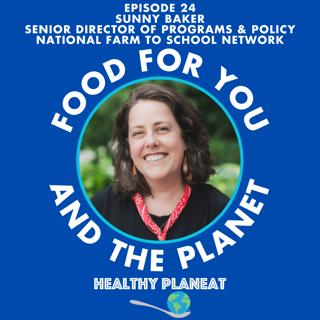
Episode 24: National Farm To School Network Sunny Baker - How Can Schools Source Healthy Food?
Sunny Baker is the Senior Director of Programs and Policy at the National Farm To School Network. For over 14 years, Sunny has worked to lead school food reform and create a new culture of regionally-based eating. Originally from St. Louis, Sunny grew up with a deep appreciation for the natural world and a strong desire to make a positive impact on her community, values shaped by her Jewish identity. One of Sunny's most notable accomplishments was her work growing the farm to school movement in Mississippi, featured at TedXManhattan in 2014. She established Good Food for Oxford Schools and co-founded the Mississippi Farm to School Network during her decade in the state. Sunny’s career has led her to make meaningful connections between food systems and food justice work, which she sees as a crucial component of racial and economic justice. She believes every child has a right to nourishing, culturally appropriate food at school, regardless of their income, race, or geographic location. She is a frequent speaker at conferences and events, where she shares her expertise on topics such as food sovereignty and the future of school food. A graduate of Hendrix College, Sunny is now located in Little Rock, Arkansas. The National Farm To School Network has a vision of a strong and just food system for all, and we seek deep transformation toward this vision through farm to school – the ways kids eat, grow, and learn about food in schools and early care and education settings. TOPICS EXPLORED 0:00 – 2:02 – Introduction 2:02 – 3:18 – What is The National Farm To School Network and what type of work does it do? 3:18 – 4:39 – How did you become interested in a career in sustainable food and agriculture? 4:39 – 6:43 – When did the National Farm To School Network begin and what are some key moments in its history as an organization? 6:43 – 10:56 – How did the school lunch program begin and why? 10:56 – 14:06 – What are some things about the school lunch program that the average person may not know or may find surprising? 14:06 – 16:47 – What are some of the challenges with the current school lunch program? 16:47 – 21:12 – What type of work is the National Farm to School Network doing to create universal values aligned School Meals? 21:12 – 23:37 – How does Early Childhood Education fit in with school lunch programs? 23:37 – 26:30 – What type of work is the National Farm to School Network doing in collaboration with Native communities? 26:30 – 28:07 – How does the National Farm to School Network support food producers? 28:07 – 30:37 – What are some of the greatest challenges with getting local food into school lunch programs? 30:37 – 33:28 – What are some of the greatest lessons you’ve learned while advocating for farm to school? 33:28 – 35:54 – Things to share and wrap up NATIONAL FARM TO SCHOOL NETWORK INFORMATION https://www.farmtoschool.org/ RESOURCES School Meals Who’s At The Table: https://www.farmtoschool.org/universal-school-meals How Do Different Local Food Purchasing Initiative Models Effect Participant Spending On Local Food: https://cdn.prod.website-files.com/5c469df2395cd53c3d913b2d/66f191be552b31347565af6d_LFPI%20Model%20Analysis%20Document%209.20.24.pdf The Benefits Of Local Food Purchasing Initiatives: https://cdn.prod.website-files.com/5c469df2395cd53c3d913b2d/665ddf814fda261f05e0e260_Benefits%20of%20LFPIs%20-%205.6.2024.pdf FOOD FOR YOU AND THE PLANET PODCAST INFORMATION Apple Podcasts: https://podcasts.apple.com/us/podcast/food-for-you-and-the-planet/id1739416396 Spotify: https://open.spotify.com/show/7pkAIuXxl9dzD48b7qMOL1 RSS: https://feeds.libsyn.com/506343/rss Podcast Instagram: @foodforyouandtheplanet TAGS Food Environment Health Podcast Sustainability Agriculture Farm To School National Farm To School Network
6 Nov 202435min
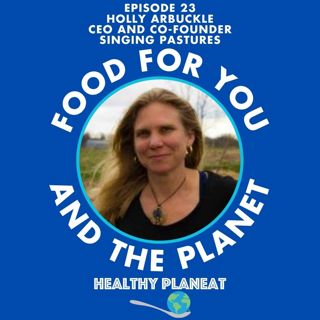
Episode 23: Singing Pastures Holly Arbuckle - What Are The Benefits of Pasture Raising Livestock?
Holly Arbuckle is the CEO and Co-Founder of Singing Pastures. Holly and her husband John own and operate Singing Pastures. John is a 9th generation farmer from the Midwest. They saw a gap in the market because there were a lot of grassfed beef sticks, but no pasture-raised pork. They started a brand in 2016 with no initial investment. Holly owns 51% of the company and is the CEO who runs the brand while her husband is the primary farmer and COO. Their current home farm is in Maine. Singing Pastures produces high-quality pork Snack Sticks and Salami. Singing Pastures believes delicious food starts with healthy land. Pasture Raised Pork is the foundation. Their pork is raised in lush, grassy pastures on family farms with no added hormones or antibiotics. They use time honored traditional methods to craft amazingly delicious snacks. TOPICS EXPLORED 0:00 – 1:19 – Introduction 1:19 – 2:28 – What is Singing Pastures and what types of products does it create? 2:28 – 4:17 – How did you and your husband become interested in a career in sustainable food and agriculture? 4:17 – 6:14 – How did you and your husband start Singing Pastures? 6:14 – 10:31 – What types of sustainable agriculture practices do you implement on your farm? 10:31 – 14:55 – You are working with Ag Allies to monitor bird populations on your farm. Can you tell me a little bit about that collaboration and the transformation that has taken place on your farm as you’ve pasture-raised your livestock? 14:55 – 18:38 – What are the diets of the animals on your farm? 18:38 – 21:41 – Can you tell me about the products you create? 21:41 – 24:44 – What makes your products unique? 24:44 – 26:37 – You are part of a team that was recently selected for a Sustainable Agriculture Research and Education grant. Can you tell me a little bit about the research that grant will fund? 26:37 – 29:09 – What are some of the ways you were able to fund the growth of your business? 29:09 – 31:35 – How did you scale up production to make your products available nation-wide? 31:35 – 34:46 – What are some of the challenges you encountered on your journey and how did you overcome them? 34:46 – 37:03 – What are some of the greatest lessons you’ve learned from growing your business? 37:03 – 38:34 – Things to share and wrap up SINGING PASTURES INFORMATION https://singingpastures.com/ RESOURCES Stone Barns 2024 SARE Grant on Grain and Vegetable Production in a Rotationally-Grazed, Pasture-Dominant Ley System – Implications for Soil Health, Soil Microbiome, and Forage: https://projects.sare.org/sare_project/FNE24-081/ Singing Pastures 2017 SARE Grant on Nutrient Density Profiles for Conventional vs Pasture-Raised Pork: https://projects.sare.org/sare_project/fnc17-1067/ Singing Pastures 2012 SARE Grant on The Cheapest Way to Produce the Best Egg: Comparing how Different Supplemental Feeds Affect the Cost and Nutrient Density of Eggs from Heritage and Hybrid Pastured Hens: https://projects.sare.org/sare_project/fnc12-844/ FOOD FOR YOU AND THE PLANET PODCAST INFORMATION Apple Podcasts: https://podcasts.apple.com/us/podcast/food-for-you-and-the-planet/id1739416396 Spotify: https://open.spotify.com/show/7pkAIuXxl9dzD48b7qMOL1 RSS: https://feeds.libsyn.com/506343/rss Podcast Instagram: @foodforyouandtheplanet TAGS Food Environment Health Podcast Sustainability Agriculture Pasture Raised
16 Okt 202438min
